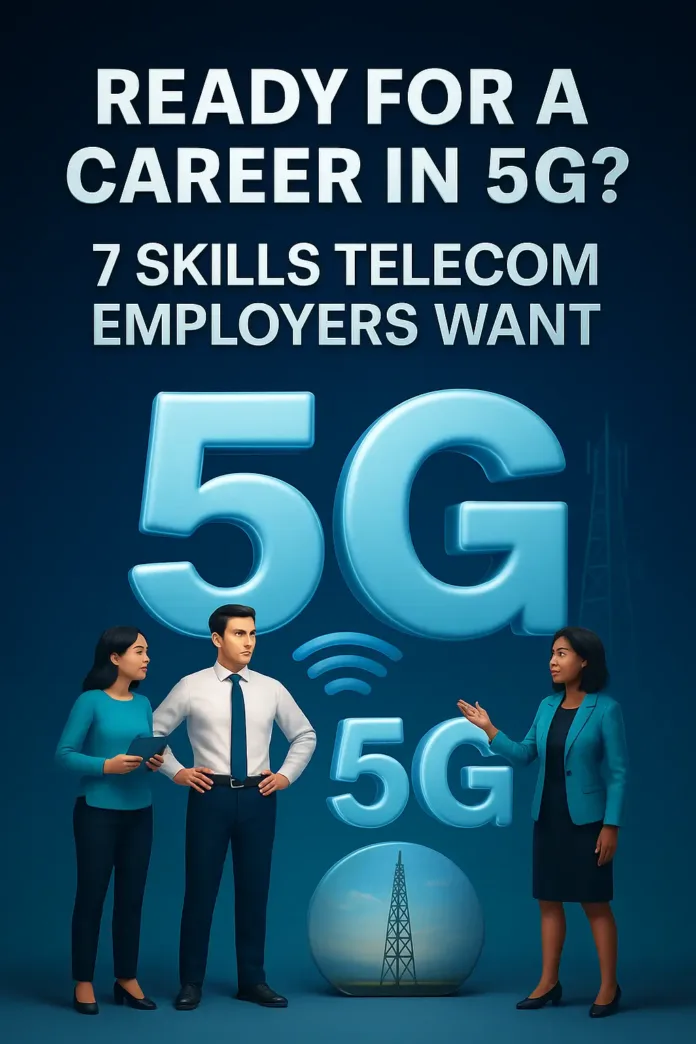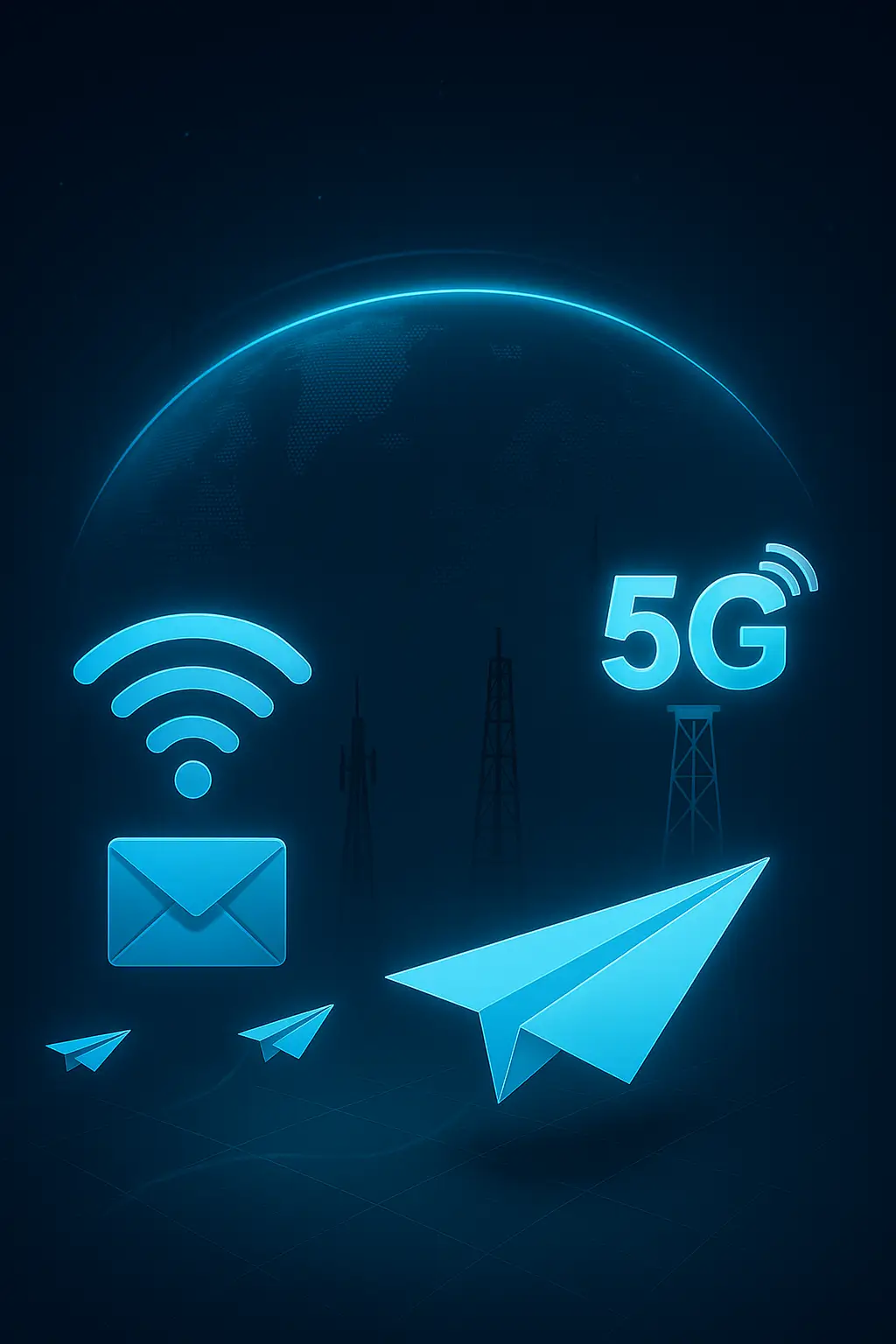7 Skills Telecom Employers Want
The 5G industry is rapidly expanding—but having a general interest in telecom isn’t enough anymore. Employers are looking for specific, practical skills that align with how modern 5G networks are planned, deployed, and optimized.
This guide highlights the seven key skill areas that give job candidates a competitive edge in the 5G talent market.
1. Understanding 5G Core Architecture
A solid grasp of network components like AMF, SMF, UPF, and gNB is essential. Employers expect candidates to understand how 5G SA (Standalone) differs from NSA (Non-Standalone), and what role the Service-Based Architecture (SBA) plays.
Bonus: Familiarity with how control and user planes are separated (CUPS) is a strong advantage.
2. Mastery of 5G Protocols
Skills in working with protocols like:
- NGAP, NAS, SCTP
- Ability to interpret protocol traces
- Hands-on knowledge of Wireshark or Tshark
This technical depth is especially relevant for integration, testing, and operations roles.
3. Simulation & Lab Testing Experience
Many roles involve validating or testing 5G networks before real-world deployment. That means hands-on time with tools like:
- UERANSIM
- Open5GS
- GNS3
Setting up a test lab—even a virtual one—shows initiative and deep technical ability.
4. Awareness of 5G Security Concepts
From air-interface threats to core-level encryption, 5G brings more complexity. Candidates with knowledge of:
- Subscriber identity protection
- Interface-level security (N2, N6, N3)
- TLS / IPsec / Authentication flows
are viewed as more versatile and ready for real-world deployment.
5. Familiarity with Cloud & Container Ecosystems
Modern 5G networks run in cloud-native environments. That means:
- Docker, Kubernetes, Helm
- Understanding of CI/CD pipelines
- Some exposure to orchestration frameworks like ONAP
This is key for roles that touch virtualized network functions (VNFs) or cloud-native network functions (CNFs).
6. Ability to Analyze and Interpret KPIs
Whether you’re on the RAN or core side, knowing how to monitor and interpret metrics is critical. Employers look for experience with:
- Latency, throughput, packet loss
- Tools like Grafana, Prometheus, or vendor-specific dashboards
Bonus if you can explain what those numbers actually mean for user experience or troubleshooting.
7. Relevant Training & Certifications
While hands-on skills matter most, having formal credentials can open doors:
- Nokia Bell Labs 5G Certification
- Huawei HCIA-5G
- Mpirical or 5GWorldPro structured training
Candidates who demonstrate ongoing learning are highly valued, especially in such a fast-moving industry.
Final Thoughts
Getting into 5G means going beyond buzzwords. It means having clear, demonstrable skills—rooted in real tools, architectures, and workflows.
Whether you’re switching from 4G, entering telecom for the first time, or upgrading your CV for a more advanced role, these seven areas can help you stand out.
Benefit from Massive discount on our 5G Training with 5WorldPro.com
Start your 5G journey and obtain 5G certification
contact us: contact@5GWorldPro.com


